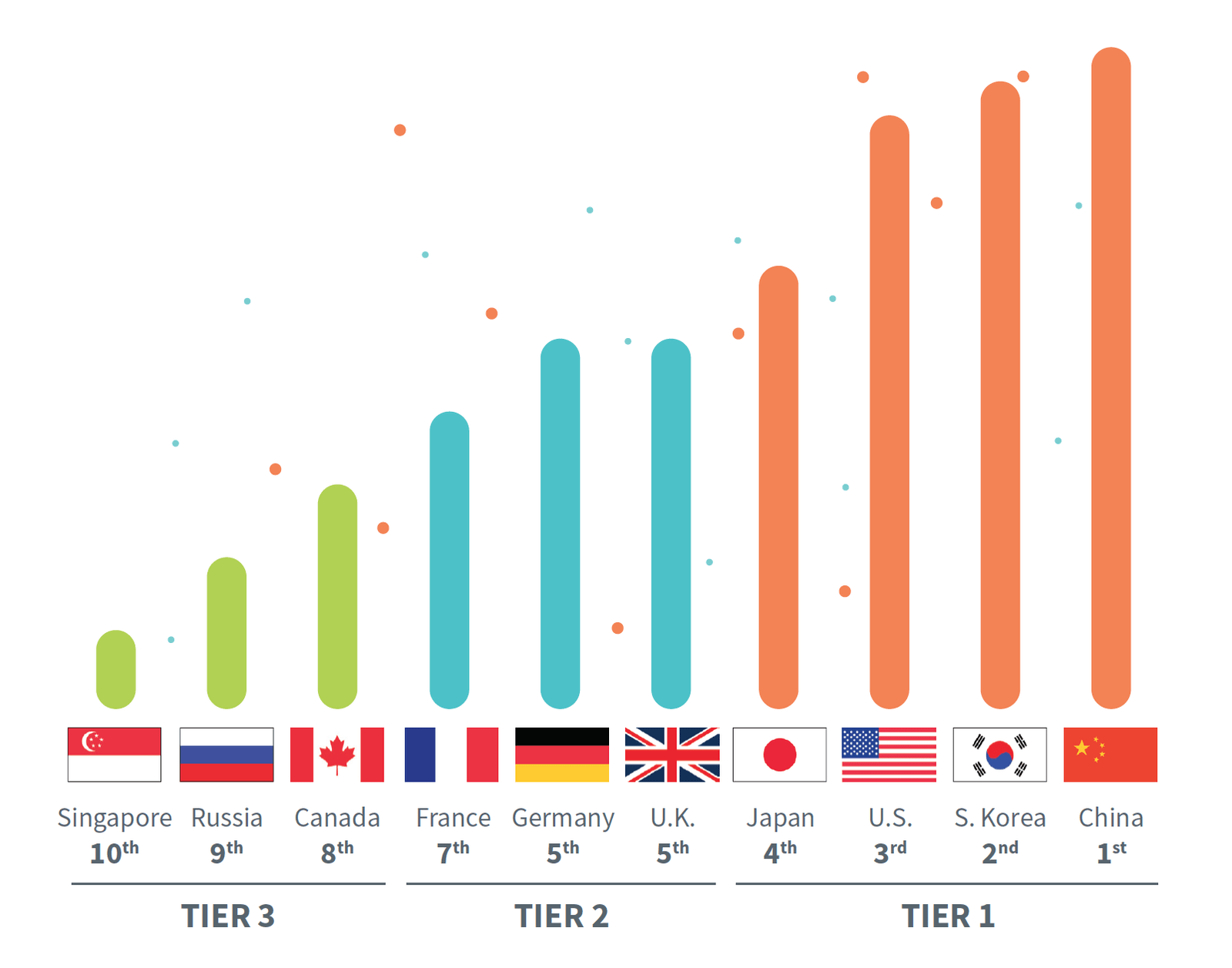~ By Charmaine Mirza
As the application of 5G technology grows amongst the Internet of Things (IoT) continuing on from our article on the 5G tug of war, between the US and China, we delve into the future of mobile technology and how key decisions taken will impact economies and the development of new technologies.

Reconfiguration Rat-rograde?
The Entity List seems to be having a retrograde impact in the Year of the Rat, as it has spurred Beijing to invest vast resources into indigenous Chinese chip manufacture. Even as Trump raises his Great Wall, both the Pentagon and the Treasury are frantically gesturing to lower it.
“US technology companies, especially chip designers, sell the great majority of their products in Asia. China’s chip design and manufacturing capacity is expanding rapidly with a blank check from Beijing, and US companies fear that Huawei and other Chinese companies will retaliate against US export controls with a price war for the high-end chips that power smartphones and servers. The Pentagon and Treasury objections to the proposed export controls indicate that the balance of power in the global chip industry has shifted towards China, according to the Asia Times.”
According to the Wall Street Journal, “The Pentagon is concerned that if US companies can’t continue to ship to Huawei, they will lose a key source of revenue – depriving them of money for research and development needed to maintain a technological edge, the people said.”
We can’t help but note that south of the border, the USA’s neighbours, seem ready to have embraced Huawei’s 5G rollout with open arms.
“Mexico is poised to welcome 5G technology, he said, adding that several Latin American countries are already reporting progress in the field with the help of Chinese telecommunications giant Huawei, which “spearheads the development of this technology.”
The expert said 5G, which requires larger bandwidth than the 4G networks now in use, is currently in the experimental stage in Mexico, according to Xinhua.”
Semiconductor Blue Chip:
If the Pentagon and the US Treasury department are concerned enough, we thought we should take a look into who Trump’s legislation is impacting exactly.
INTEL, Micron Technologies, Broadcomm, Qualcomm, Texas Instruments, and Nvidia are six of the top ten semiconductor manufacturing companies in the world – and among some of the most valued companies in the USA. The fact that the growth of the US top 5: Apple, Microsoft, Alphabet, Amazon and Facebook are also dependent on 5G technology (where Huawei is the global leader) is just another blip on the Trade(ar).
“According to Asia Times, in April 2018 the US banned chip exports to the Chinese handset manufacturer ZTE in retaliation for violation of Iran sanctions, shutting ZTE down until President Trump negotiated a massive fine in return for resumption of deliveries. Only four months later, in August 2018, Huawei announced its Kirin chipset for smartphones, claiming better performance than Qualcomm’s market-leading product. In December 2019 Huawei began shipping smartphones with no US components. It already had shipped 5G base stations in September 2019 with zero US components.”
(Cultural Aside: In Mandarin, a “Kirin” is a mythical hooved creature of fantasy said to appear with the arrival of a sage).
Perhaps the Chinese see far-reaching wisdom in investing in the manufacture of their own semiconductor chips, in their future quest for global tech dominance. In an ironic twist of fate, the Chinese have invited the Taiwanese at a fabulous cost to come to mainland China and set up entire chip manufacturing units.
But for the time being Trump’s sanctions might just be Johnson’s redemption:
“The Chinese company uses chip design technology from Britain’s ARM, owned by Japan’s Softbank. In October, ARM announced that its exports to Huawei do not violate US content rules said Asia Times.”
Which just goes to prove that technology has no borders. Maybe it’s time to put away your passport and just let your chip flex it’s muscle.
